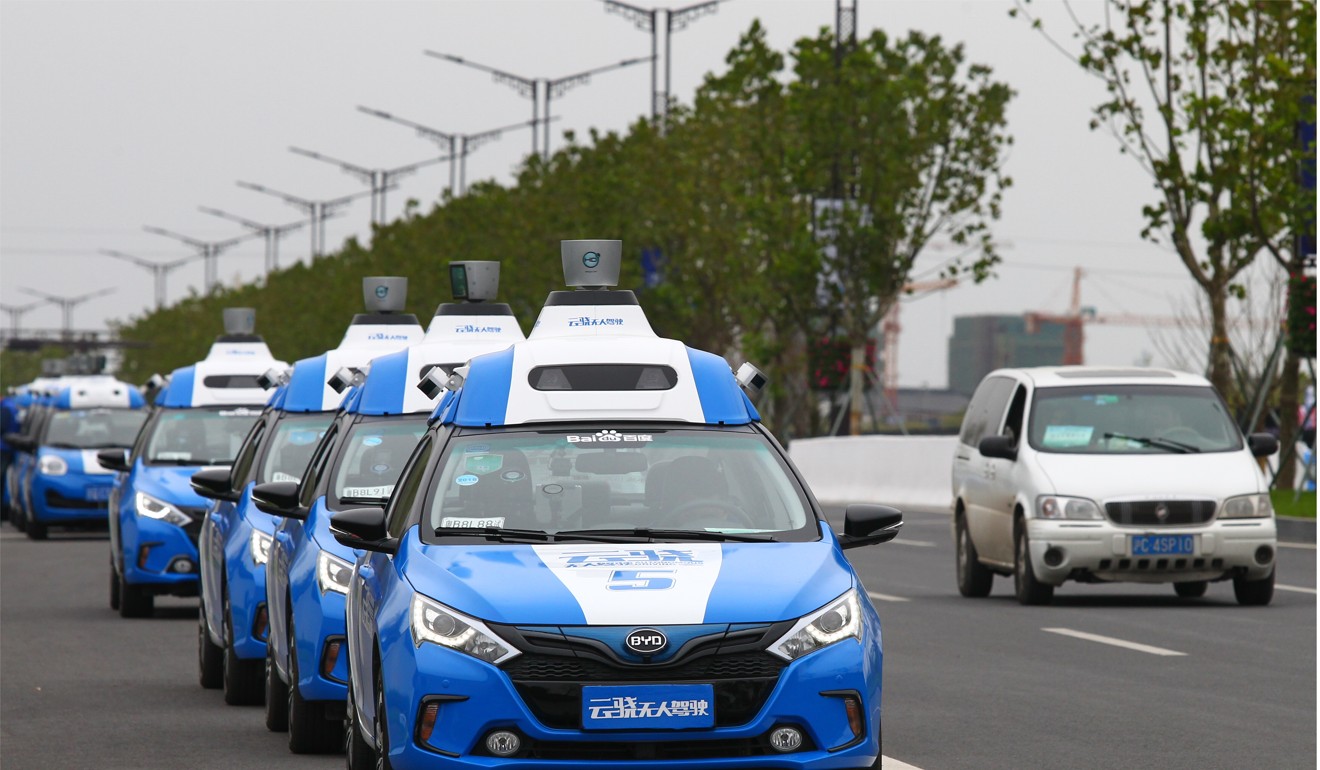
Baidu CEO is ‘more relaxed’ as investments in AI finally set to pay off
Baidu chief Robin Li says the search-engine operator missed the boat on mobile internet because he did not grasp the importance of mobile phones at the time - but the company is not making the same mistake with artificial intelligence.
One of China’s richest men with an estimated wealth of US$18.3 billion, Li just appeared on the cover of Time, joining the likes of Steve Jobs and Jeff Bezos among tech luminaries featured in the magazine.
“We started to deploy in AI about six or seven years ago,” Li, who turns 50 in November, said at the GeekPark forum in Beijing on Sunday, according to a transcript of comments verified by Baidu. “Now that AI is become mature enough to have some use in the market, we feel relatively more relaxed, feel that this day has finally come.”

Now that AI is become mature enough to have some use in the market, we feel relatively more relaxed
Li said that many people had advised him back in 2002 and 2003 to prepare for the mobile internet, that an age of untethered web access centred on the mobile phone was coming. But Baidu didn’t do much because “we didn’t know how to make mobile internet better,” he said.
“My feeling at that time was how important can the mobile phone be? The screen is so small, the speed is so slow, you have to pay for every byte, so we felt we weren’t ready,” he said.
“With time, this attitude led to a sort of numbness, a feeling that it may not come at all, maybe it’ll take another year or two,” he said. “Until around 2011 when the mobile internet era really came about, many people have already positioned themselves and we have not, that was bad, at that time we were indeed panicking a little.”
Fast-forward to November 2017 and Baidu was included in a hand-picked “national team” of technology champions, alongside Alibaba and Tencent, and tasked to help lead others to develop in their respective areas of expertise. Alibaba owns the South China Morning Post.
For Baidu, the goal was to build an open-source platform for autonomous driving to rival those being developed in traditional motoring powerhouses like the US, Germany and Japan.
Baidu made several major changes last year to remake itself as an AI-first company, ramping up its efforts in autonomous driving and conversational computing platform DuerOS.
The company is positioned to earn fees as the use of AI becomes more widespread and the number of users increase, she said.
In terms of personnel, Baidu has lost a number of key executives in the past year, including Andrew Ng, the former chief scientist who started Google Brain. However the hiring of Lu from Microsoft has given Li the room to “zoom out”, he said.
“I now have six to seven people report to me directly, down from more than a dozen,” said Li. “That enables me to see the company with a distance, getting a clearer picture on what the company looks like, what the market looks like and what our future looks like”.


